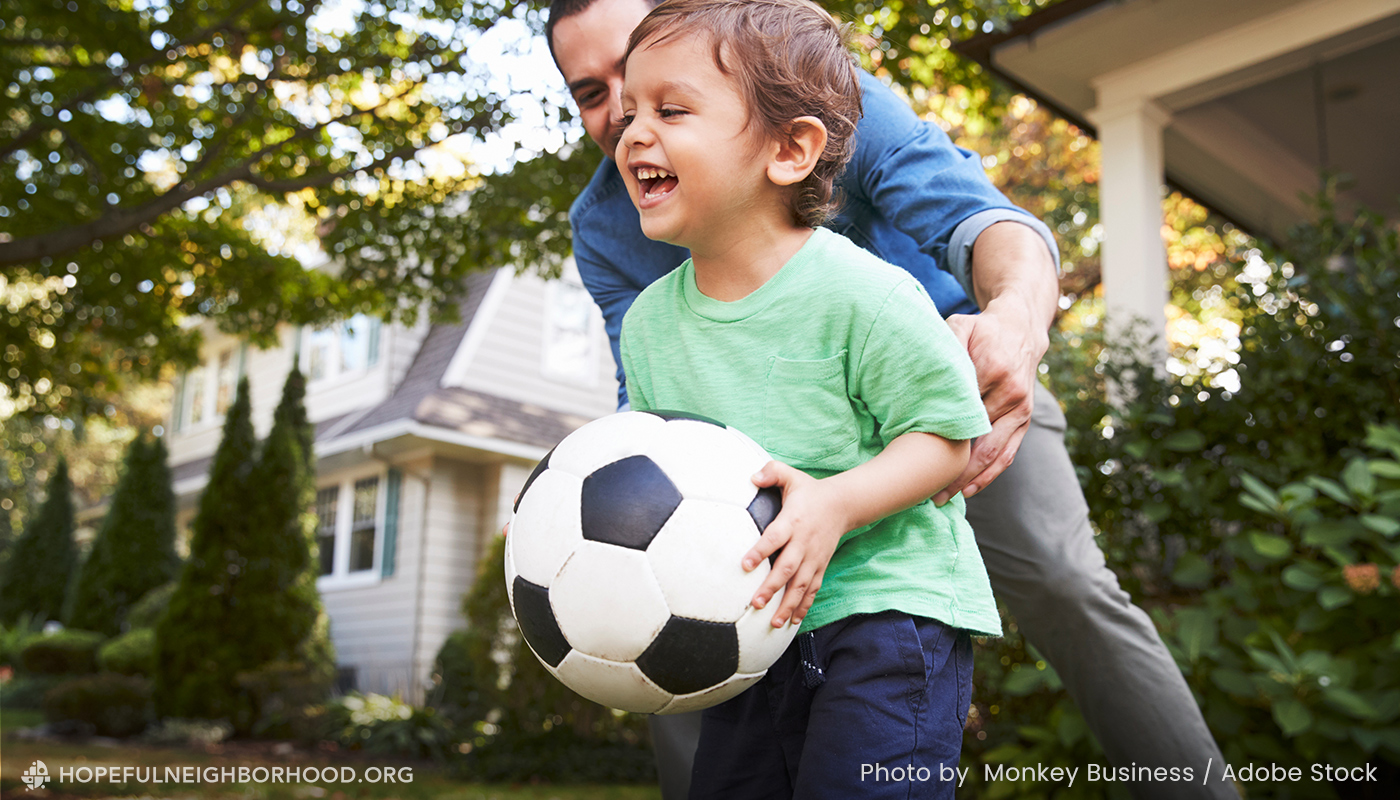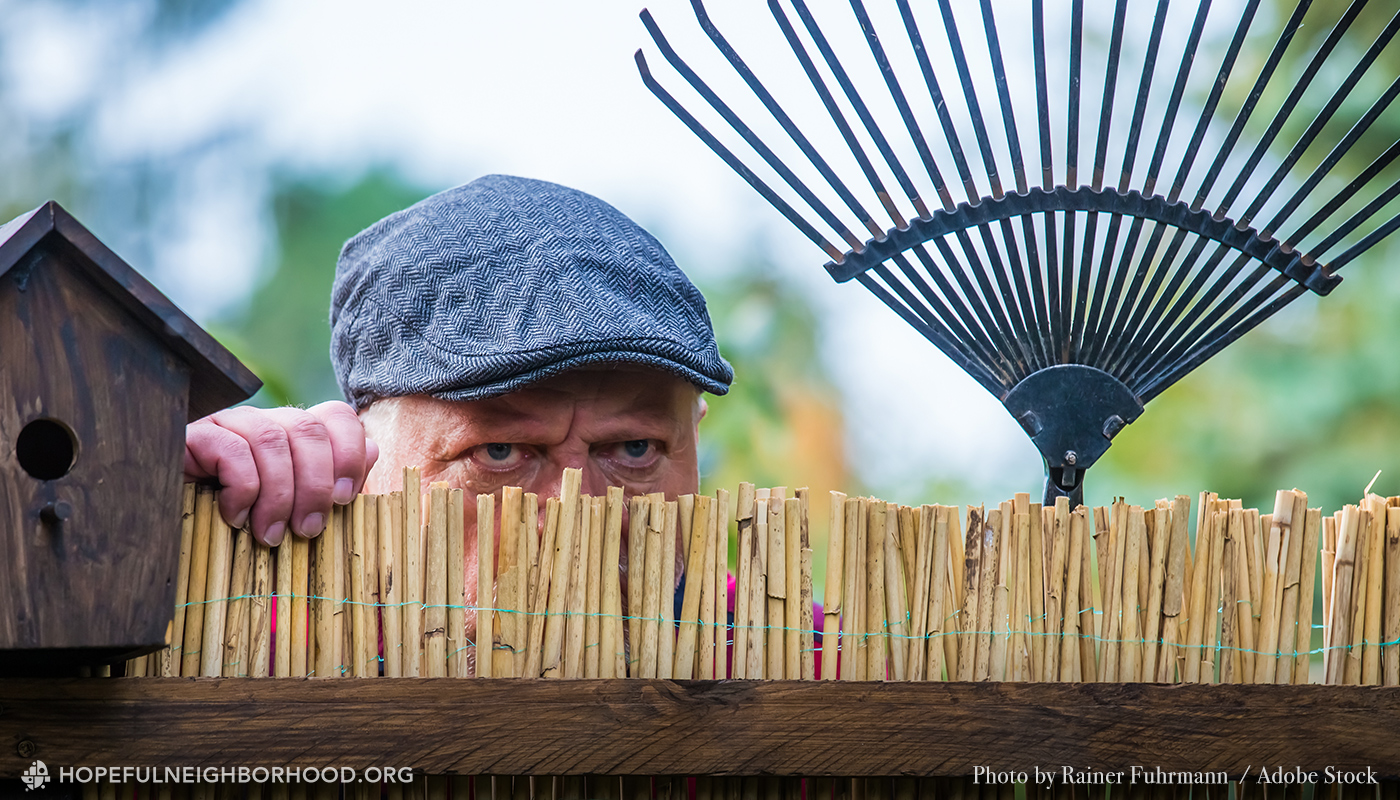You like all of your neighbors, right?! If that is true, then you are very fortunate. When we talk to friends and co-workers about their neighbors, everyone seems to have a story. The neighbor that won’t trim the tree that is dropping leaves in your pool, the neighbor that keeps finding new ways to prop up the fence they are too cheap to replace, the neighbors who are always arguing during your child’s daily nap. We all dream of living in a neighborhood filled with great friends, who share sugar, look out for one another, and invite you into their garden to pick fresh vegetables and herbs. But very few of us live in a neighborhood like this. Whether you live in an expansive suburb or dense urban neighborhood, the complexity of neighboring rarely escapes us.
Over the years, we have felt the tension of being neighbors to people we didn’t particularly like. In some instances, we were even concerned they may cause us harm. There are stories to tell, but one of the most memorable is of a family who lived next door to us in the apartment above the garage. Fred and Jamie were parents to three young children when we met them; they were also addicted to meth. Fred had a small workshop in the garage downstairs where we always believed he was cooking meth. We would see them often, we always greeted one another, but they occasionally would disappear for a few days. We later learned they would use during those times and spend those days stoned in their apartment. There was little for their children to do inside of their small apartment, so the kids would slip through our fence and play in our backyard for hours each day.
We fell in love with the children and found Fred and Jamie to be wonderful people. Unfortunately, our hearts became hardened toward them over time as we found ourselves stepping in to feed their children, teaching them to spell, and taking them to school because of their parents’ growing addiction.
HOW WOULD YOU RESPOND?
The challenge for us was to resist the temptation to see Fred and Jamie as our enemies. We did not need to be against them, and they certainly were not against us. However, maintaining this perspective was not easy.
As we have written about before, in order to do this we had to see Fred and Jamie as human. We had to embrace the fact that we were part of their community—whether we liked it or not. We were their neighbors, perhaps serendipitously, so we could provide support for their children during those very difficult days.
We wish we could tell you that this story didn’t get more complex, but our neighborhoods are full of complex human stories. We reported them to Child Protective Services a couple of times when things got really bad. Then, in the middle of one of those difficult seasons, Jamie became pregnant with their fourth child. She and Fred had fallen deep into their addiction and when giving birth to their fourth child the nurses drew blood and discovered the baby had drugs in her system. Shortly after returning home from the hospital, a white van pulled up along with Sheriff’s deputies, and Child Protective Services removed all four children from their home.
We watched as the children were driven away; tears fell from their eyes; they didn’t understand what was happening or why. Everyone was hurting, because everyone involved was human.
No matter how much this situation spiraled out of control, or how much any situation you face with your neighbors challenges your peace, compassion is the only response that will nurture relationships over time.
Fred and Jamie’s children entered the foster care system, were ultimately adopted by a family, and have excelled. Fred and Jamie lost their apartment, continued in their addiction, but they have maintained contact with us.
Fortunately, they have been able to witness their children’s success over the years. The story is bittersweet, but through it all we were able to prioritize our relationship with them as neighbors. That’s because what binds us together in our neighborhoods isn’t our common experiences; it’s our common geography. We don’t have to be fans of one another, but we do get to be neighbors.


0 Comments